|
Who qualifies as a journalist? Do you have to work for a mainstream media outlet? If you don’t have the imprimatur of an award-winning newspaper like The New York Times or Washington Post, does that negate your right to gather and convey information?
That seems to be the case in certain parts of Texas, where police have twice recently arrested private citizens for committing the crime of journalism. In 2021, the Fort Bend County Sheriff’s Office arrested and strip-searched Justin Pulliam – who posts on the YouTube channel Corruption Report – for filming police during a mental health call. Despite following police instructions to stand away from the interaction, Pulliam was charged with “Interference with Public Duties,” a Class B misdemeanor under Texas state law. It wasn’t the first time Pulliam had been legally harassed – earlier that year he was ejected from a press conference because authorities said he did not qualify as a journalist. A similar situation happened back in 2017, when Laredo police arrested citizen journalist Priscilla Villareal under a statute prohibiting the solicitation of nonpublic information where there is “intent to obtain a benefit.” AKA journalism. The Fifth Circuit initially sided with Villareal, with Judge Ho writing: “If the First Amendment means anything, it surely means a citizen journalist has the right to ask a public official a question, without fear of being imprisoned. Yet that is exactly what happened here: Priscilla Villarreal was put in jail for asking a police officer a question. If that is not an obvious violation of the Constitution, it’s hard to imagine what would be.” Unfortunately, the full court backtracked during an en banc appeal, finding that city officials had qualified immunity. As we wrote at the time, that ruling set a terrible precedent for freedom of the press – sending a message that reporters should be wary of arrest and reprisal for daring to ask questions of government officials. Now, Pulliam’s case is up before the Fifth Circuit too, following a Texas district court’s rejection of the defendants’ qualified immunity argument. We’ll see whether the judges get it right this time and acknowledge that Corruption Report constitutes a “legitimate” media outlet. In Villareal’s case, Judge Edith Jones suggested that her Lagordiloca page was not. We respectfully disagree. Courts should not be in the business of determining who is and who is not a “legitimate” reporter according to platform or reporting style. The changing technological landscape has enfranchised a new class of citizen journalists no less deserving of respect and the protections of the First Amendment than their more well-heeled counterparts. Offering a step in the right direction, the Protect Reporters from Exploitive State Spying (PRESS) Act, introduced by Sen. Ron Wyden and Rep. Jamie Raskin, brings all sorts of journalists into the fold and provides a shield for reporters’ notes and sources from prying prosecutors. The PRESS Act defines a covered journalist as someone who “gathers, prepares, collects, photographs, records, writes, edits, reports, or publishes news or information that concerns news events or other matters of public interest for dissemination to the public.” That would certainly include Pulliam and Villareal. The House passed the PRESS Act by unanimous voice vote earlier this year. The Senate should follow up and send it to the president’s desk for signature. As for the Fifth Circuit, the Pulliam case is a great chance to revise its stance and catch up with the evolution of the fourth estate. Reporters Without Borders dropped the United States 10 places on its annual rankings from last year, from 45th to 55th place out of 180 countries in its 2024 World Press Freedom Index. This is part of a trend. This NGO has downgraded the United States, which enshrines freedom of the press in our Constitution, from 17th best for press freedom in 2002 to that 55th place now.
To be fair, some of the organization’s metrics are questionable. For example, Argentina fell from 40th place last year to 66th place in 2024 after newly elected President Javier Miliei shuttered news outlet Télam and put its 700 journalists on the street. It should be noted, however, that Télam was a money-losing, state-funded news agency founded by Juan Perón and known for being a government and Peronista mouthpiece under previous administrations. So how fairly did Reporters Without Borders treat the United States? It seems overkill to us to rank the United States below the Ivory Coast, where reporters are routinely called in by prosecutors and newspapers are suspended – or Romania, where a prominent journalist who investigated the government had her personal images hacked and uploaded to an adult website. At the same time, while we can take issue with the overall ranking of the United States, this NGO is correct on what the British call the direction of travel. Protect The 1st has reported what Reporters Without Borders states: “In several high-profile instances, local law enforcement has carried out chilling actions, including raiding newsrooms and arresting journalists.” We would add to that the lack of a federal press shield law also leaves reporters vulnerable to being wiretapped and worse. The good news is that protections for reporters have a strong basis of public support in the United States. A recent survey by the Pew Research Center reveals robust support among Americans for the principle of press freedom, underscoring its vital role in our democracy. It’s heartening to note that nearly three-quarters of U.S. adults (73 percent) consider the freedom of the press — enshrined in the First Amendment — extremely or very important to the well-being of society. Still, we have reason for caution. While a significant majority of Americans acknowledge the importance of a free press, many are concerned about threats to journalistic freedom. Notably, a substantial portion of the population believes U.S. media is influenced by corporate and political interests — 84 percent and 83 percent respectively. In our polarized society, partisan differences color these perceptions of press freedom. Republicans and Independents consistently express greater concern over media restrictions and the influence of political interests compared to Democrats. Equally concerning is the broader debate over the balance between safeguarding press freedom and curbing “misinformation.” Approximately half of the American population is torn between the necessity to prevent the spread of false information and the imperative to protect press freedoms, even if it means some false information might circulate. While it's encouraging to see strong support for journalistic freedoms among Americans, local authorities must understand that raids and legal threats against reporters is intolerable under our Constitution and under the press shield laws of 49 states. And we need a federal press shield law – the PRESS Act, which recently passed the U.S. House – to reduce the shadow the Department of Justice can cast over the free exercise of journalism. We’ve got work to do. Congress Should Celebrate It by Passing the PRESS ActLike many declarations of the United Nations, the 31st anniversary of World Press Freedom Day is more aspirational than reality in many UN member countries.
In some countries, journalists are routinely killed for reporting on corrupt politicians and police agencies. UN Secretary-General Antonio Guterres’ says that violence is also common among journalists covering local environmental issues like illegal mining, logging, poaching and other acts of “environmental vandalism.” Much of the repression comes from sophisticated state actors. In China, imprisoned Hong Kong publisher Jimmy Lai stayed in that jurisdiction to bravely stare down official repression after his newspaper, Apple Daily, was shuttered. In Russia, Evan Gershkovich of The Wall Street Journal remains held on specious charges of spying for the CIA by Vladimir Putin’s judicial puppets. “Journalism should not be a crime anywhere on the earth,” President Biden declared today. We agree and would only add, for unfortunately necessary emphasis, “including the United States.” While 49 U.S. states have press shield laws, there is no federal law that protects the notes and sources of a journalist from being seized by a federal prosecutor. Many U.S. reporters have gone to jail rather than bow to a prosecutor’s demand to reveal his or her sources. All the more reason to celebrate World Press Freedom in America by asking Congress to get behind the PRESS Act, which would extend these basic protections to the federal government. “If you cannot offer a source a promise of confidentiality as a journalist, your toolbox is empty,” celebrated investigative journalist Catherine Herridge told members of a House Judiciary subcommittee. “No whistleblower is coming forward, no government official with evidence of misconduct or corruption. And what that means is that it interrupts the free flow of information to the public … Journalism is about an informed electorate, which is the bedrock of our democracy.” We urge Congress to honor the First Amendment and the freedom of the press by passing the PRESS Act. Former U.S. Representatives, Bob Goodlatte (and our senior policy advisor) and Barbara Comstock, provide insight in The Hill about the latest House hearing highlighting the latest threat to journalism and why the Senate should finally pass the PRESS Act.
Forty-nine states protect journalist-source confidentiality. But the federal government does not. Gene Schaerr, our general counsel, co-authored a piece in The Dallas Morning News with Seth Stern, the director of advocacy for Freedom of the Press Foundation and a First Amendment lawyer, on The PRESS Act.
The PRESS Act is the strongest federal “shield” bill for journalists ever introduced. Not only would it stop the government from compelling journalists themselves to burn sources, but it would also bar officials from surveilling phone and email providers to find out who is talking to journalists. The growth of the surveillance state in Washington, D.C., is coinciding with a renewed determination by federal agencies to expose journalists’ notes and sources. Recent events show how our Fourth Amendment right against unreasonable searches and seizures and our First Amendment right of a free press are inextricable and mutually reinforcing – that if you degrade one of these rights, you threaten both of them.
In May, we reported that the FBI raided the home of journalist Tim Burke, seizing his computer, hard drives, and cellphone, after he reported on embarrassing outtakes of a Fox News interview. It turns out these outtakes had already been posted online. Warrants were obtained, but on what credible allegation of probable cause? Or consider CBS News senior correspondent Catherine Herridge who was laid off, then days later ordered by a federal judge to reveal the identity of a confidential source she used for a series of 2017 stories published while she worked at Fox News. Shortly afterwards, Herridge was held in contempt for refusing to divulge that source. This raises the question that when CBS had earlier terminated Herridge and seized her files, would network executives have been willing to put their freedom on the line as Herridge has done? In response to public outcry, CBS relented and handed Herridge’s notes back to her. But local journalists cannot count on generating the national attention and sympathy that a celebrity journalist can. Now add to this vulnerability the reality that every American who is online – whether a national correspondent or a college student – has his or her sensitive and personal information sold to more than a dozen federal agencies by data brokers, a $250 billion industry that markets our data in the shadows. The sellers of our privacy compile nearly limitless data dossiers that “reveal the most intimate details of our lives, our movements, habits, associations, health conditions, and ideologies.” Data brokers have established a sophisticated system to aggregate data from nearly every platform and device that records personal information to develop detailed profiles on individuals. To fill in the blanks, they also sweep up information from public records. So if you have a smartphone, apps, or search online, your life is already an open book to the government. In this way, state and federal intelligence and law enforcement agencies can use the data broker loophole to obtain information about Americans that they would otherwise need a warrant, court order, or subpoena to obtain. Now imagine what might happen as these two trends converge – a government hungry to expose journalists’ sources, but one that also has access to a journalist’s location history, as well as everyone they have called, texted, and emailed. It is hardly paranoid, then, to worry that when a prosecutor tries to compel a journalist to give up a source through legal means, purchased data may have already given the government a road map on what to seek. The combined threat to privacy from pervasive surveillance and prosecutors seeking journalists’ notes is serious and growing. This is why Protect The 1st supports legislation to protect journalistic privacy and close the data broker loophole. The Protect Reporters from Exploitive State Spying, or PRESS Act would grant a privilege to protect confidential news sources in federal legal proceedings, while offering reasonable exceptions for extreme situations. Such “shield laws” have been put into place in 49 states. The PRESS Act, which passed the House in January with unanimous, bipartisan support, would bring the federal government in line with the states. Likewise, the Fourth Amendment Is Not For Sale Act would close the data broker loophole and require the government to obtain a warrant before it can seize our personal information, as required by the Fourth Amendment of the U.S. Constitution. The House Judiciary Committee voted to advance the Fourth Amendment Is Not For Sale Act out of committee with strong bipartisan support in July. The Judiciary Committee also reported out a strong data broker loophole closure as part of the Protect Liberty Act in December. Now, it’s up to Congress to include these protection and reform measures in the reauthorization of Section 702. Protect The 1st urges lawmakers to pass measures to protect privacy and a free press. They will rise or fall together. Reporters treat promises of confidentiality to potential sources as sacred for a reason. The promise of anonymity is the bedrock upon which investigative journalism rests. This promise is so central to a free press that a bill to codify its protection is currently wending its way through Congress. The PRESS Act would protect journalists and their sources by granting a privilege to shield confidential news sources in federal legal proceedings.
CBS went one step further after it terminated investigative journalist Catherine Herridge: the news division reportedly seized her files, including private information about privileged sources. Lawyer Jonathan Turley writes CBS is “moving toward a resolution,” with some reports indicating CBS has already returned the files. But the initial action, which sparked widespread concern among CBS employees, is instructive about the need to protect reporters and sources. Turley in The Hill wrote that the “the timing of Herridge’s termination immediately raised suspicions in Washington. She was pursuing stories that were unwelcomed by the Biden White House and many Democratic powerhouses,” which landed her in hot water with CBS executives. After she was terminated, the network seized her notes and files, informing her that it would decide what would be released to her. Such an action defied established media tradition. “Journalists are generally allowed to leave with their files,” Turley writes. “Under the standard contract, including the one at CBS, journalists agree that they will make files available to the network if needed in future litigation. That presupposes that they will retain control of their files.” CBS also suggested that it would allow unnamed individuals to look through Herridge’s files to determine what she would have been allowed to keep. A former CBS manager said that he had “never heard of anything like this.” The Screen Actors Guild-American Federation of Television and Radio Artists union (SAG-AFTRA) has raised the issue with CBS, noting the effect of this action could have on journalistic practices and source confidentiality. If this issue is, in fact, not resolved as reported, the union could well take this to court to test Herridge’s claim to her notes. Why did CBS News risk tarnishing its own legacy? It shouldn’t matter if Herridge’s investigation is of Hunter Biden’s laptop, Donald Trump, Robert F. Kennedy Jr., or the My Pillow Guy. By originally suggesting that CBS will unilaterally decide the fate of Herridge's files, including those originating from her tenure at Fox News, the network risked undermining the willingness of sources to come forward with sensitive information for all news gatherers. This is one more reason why Protect The 1st stands firmly in favor of The PRESS Act. As we wrote last November, ironically about Catherine Herridge in a different context, the PRESS Act would have made a difference when she was ordered by a federal judge to reveal the identity of confidential sources she used for a series of 2017 stories published while she worked at Fox News. If CBS did hold on to the files, it could easily lose control of them through a leak or litigation. If ordered by a court to reveal these documents, would executives have risked jail time like Herridge has done? Although the First Amendment does not apply to a private company, CBS News should not be less supportive of a free press than the government. The Fifth Circuit Court of Appeals just dealt a serious blow to the freedom of the press, endorsing immunity for arresting a reporter for simply asking questions of the government and publishing the answers. The case, Villarreal v. City of Laredo Texas, arose when Facebook vlogger-journalist Priscilla Villarreal, who goes by the self-deprecating nickname Lagordiloca (“crazy, fat woman”) was detained for her coverage of a traffic accident and the suicide of a U.S. Border Patrol employee in Laredo.
Villarreal swore that she corroborated the names of the deceased individuals in the suicide and traffic accident with a source in the Laredo Police Department – taking this step after independently verifying these identities. In response to her reporting, Villarreal was detained and charged with violating a Texas law that makes it a crime to solicit nonpublic information from a public servant “with intent to obtain a benefit.” During the booking process, officers surrounded Villarreal, mocked her, and took cellphone photos of her while she was being fingerprinted. The case had already appeared before the Fifth Circuit Court of Appeals in 2022, when a panel of judges originally sided with Villarreal. Judge Ho, writing for the court, held that “if the First Amendment means anything, it surely means that a citizen journalist has the right to ask a public official a question, without fear of being imprisoned.” The en banc appeal, which was decided recently, held that city officials were entitled to qualified immunity and that “Villarreal sought to capitalize on others’ tragedies to propel her reputation and career.” Such weaponized language could easily be leveled against any news outlet in the country. This case sets a bad precedent for the freedom of the press if reporters can’t ask government officials questions without fear of arrest and other reprisals, with the police inflicting such injury held immune for any consequences. Consider one case in November, when reporter Hank Sanders was cited for persistently asking Calumet City officials for a comment about flooding in the town. The citation was ultimately dropped after city officials realized that enforcing the citation would prove to be more of a hassle than simply responding to Sanders and his questions. Or consider the rural Kansas police department that ransacked the offices of the Marion County Record in execution of a search warrant to track down an informant. The leaked information? A local restauranteur’s DUI record that the newspaper had already decided not to print. Computers were seized, cell phones were snatched, all just to bully the press. We have long counted on a judicial buffer to correct local abuses. Thanks to the Fifth Circuit’s expansive view of qualified immunity, and seemingly narrow view of First Amendment rights, that buffer just became thinner. If the same standard that the Fifth Circuit endorsed were to be adopted across the country, journalists would be left with little recourse when law enforcement comes crashing through their doors, but ultimately declines to prosecute them. In his dissent in the Villarreal case, Judge James Graves wrote that the Fifth’s opinion means journalists “will only be able to report information the government chooses to share” lest they face arrest and other harassment. Villarreal has already declared her intent to appeal to the U.S. Supreme Court. Protect The 1st supports Villarreal’s appeal and looks forward to her vindication for the sake of all American journalists. “Once again, the House has passed the Protect Reporters from Exploitive State Spying (PRESS) Act with unanimous, bipartisan support. Forty-nine states have press shield laws protecting journalists and their sources from the prying eyes of prosecutors. The federal government does not. From Fox News to The New York Times, government has surveilled journalists in order to catch their sources. Journalists have been held in contempt and even jailed for bravely safeguarding the trust of their sources.
“The PRESS Act corrects this by granting a privilege to protect confidential news sources in federal legal proceedings, while offering reasonable exceptions for extreme situations. Such laws work well for the states and would safeguard Americans’ right to evaluate claims of secret wrongdoing for themselves. “Great credit goes to Rep. Kevin Kiley and Rep. Jamie Raskin for lining up bipartisan support for this reaffirmation of the First Amendment. As in 2022, the last time the House passed this act, the duty now shifts to the U.S. Senate to respond to this display of unanimous, bipartisan support. I am optimistic. At a time of gridlock, enacting this bill into law would be a positive message that would reflect well on every Senator.” The Freedom of the Press Foundation reports a disturbing trend at the county and municipal levels: governments pulling official notices from local papers in retaliation for unfavorable reporting.
In Delaware County, New York, the board of supervisors dropped local newspaper The Reporter as the official county paper for printing local laws and notices in 2022, citing increased prices for advertising. A year later, however, the board wrote a letter to The Reporter’s publishers to complain about its coverage, specifically stating the true reason for the county’s decision: displeasure over certain elements of the paper’s reporting. The New York Times picked up the story. Days later, the Delaware County Attorney issued a gag order on all county employees prohibiting them from speaking to The Reporter at all. Now, the paper is suing, alleging First and Fourteenth Amendment violations. In addition to police raids of newsrooms and arrests of journalists by local governments, the defunding movement is gaining steam against already financially stressed local newspapers across the country. In Putnam County, New York, the local government terminated The Putnam County News and Recorder’s contract to publish county legal notices following supposedly critical coverage of the newly elected county executive. As in Delaware County, it seemed a blatant attempt to use the power of the purse strings to manipulate local media. Similarly, in Kansas, the attorney general issued an advisory opinion suggesting that local governments could exempt themselves from a state law requiring official notices to be published in a designated newspaper. Since then, the cities of Hillsboro and Westmoreland have done exactly that, creating heightened concerns about a lack of government transparency in the process. In Ohio, the state passed a little noticed new law in its 6,000-page budget permitting cities and towns to publish notices on their official websites rather than in local papers. (A similar action also took place in Florida.) There are benign explanations for this move. But these new standards give local governments new ammunition to employ against newspapers in an effort to control the narrative. It’s a storied tradition for municipalities to post public notices in newspapers (in fact, most cities and towns have laws requiring them to do so). The purpose is to keep residents and voters informed of official government actions – local meetings, land sales, zoning changes, and the like. And while failing to uphold this practice does not violate the Constitution, government retaliation against newspapers based on their reporting certainly does. Gagging county employees willing to speak on matters of public concern, moreover, violates both the newspapers’ First Amendment rights and those of the prospective speakers and whistle-blowers. We applaud the Freedom of the Press Foundation’s efforts to support local papers and fight back against officials more concerned with consolidating power than protecting speech. Settlement Spurs Civics Lesson for Law Enforcement Last month, Los Angeles County reached a $700,000 settlement agreement with a radio journalist who was accosted and arrested by police while attempting to document law enforcement’s response to a local protest. It’s a significant sum that will deter future government hostility against reporters who are simply doing their jobs.
Most critical of all, the settlement includes new training requirements for law enforcement personnel about the media and the First Amendment, as well as policies and laws governing interactions with the press. We wrote recently about a series of similar incidents across the country in which government officials have misused their authority to punish journalists. This includes an FBI raid of a Florida journalist’s home, a retaliatory raid in Kansas preceding an elderly publisher’s death, and the arrest of a publisher in Alabama for lawfully reporting on leaks from a grand jury about the mishandling of COVID funds. Even in Washington, D.C., the media is not immune from such abuses. Consider the case of CBS News Correspondent Catherine Herridge, who was ordered by a U.S. district court judge to reveal the identity of confidential sources she used for a series of 2017 stories. She has, laudably, refused to do so, risking imprisonment in the process. In Herridge’s case – and in many other similar cases – the passage of the Protect Reporters from Exploitive State Spying (PRESS) Act would be a major step in the right direction, limiting the ability of prosecutors to expose the sources and notes of journalists in federal court. More fundamentally, however, what we need most is better education and constitutional literacy. That’s why the recent events in Los Angeles County are so important. In that case, LAist journalist Josie Huang briefly filmed sheriff’s deputies arresting a protester when she was ordered to “back up.” Before Huang could respond, she was brutally slammed to the ground and subsequently taken to jail and charged with obstructing a peace officer. Outcry was swift, with the Reporters Committee for Freedom of the Press and 65 other media organizations quickly mobilizing to demand that charges against Huang be dropped. The district attorney’s office, likely recognizing the unconstitutional actions of the sheriff’s deputies, declined to prosecute. A court later found her factually innocent of the charges. The resolution in Los Angeles is a good outcome, but it shouldn’t take a crisis to require law enforcement officers to have some semblance of understanding of the First Amendment. With any luck, the Huang incident can serve as a lesson – in civics as much as in consequences. That a free press is integral to free speech was obvious to the founders, who guaranteed both in the First Amendment. But is it so obvious today? Under both Democratic and Republican presidents, federal investigators have helped themselves to the private records of the AP, CNN, The Washington Post, and The New York Times, as well as those of activist journalists on both the left and right.
In Kansas, police raided a small-town newspaper over a minor story involving public records and a DUI. The police confiscated newsroom computers containing reporters’ notes and source materials and putting the very existence of the paper at risk. Fortunately, Kansas has a state press shield law that grants media the right to keep source identities confidential. Journalists enjoy no such protections at the federal level. It is not clear what recourse, for example, Tampa-based journalist Tim Burke has after the FBI stormed his home in May, confiscating his computer, cellphone, and information on multiple stories and their sources. If trust is the coin of the realm, then the federal government’s coinage is debased. The Pew Research Center reports that only 2 percent of Americans trust the government in Washington to do what is right “just about always.” Only 19 percent believe the government acts correctly “most of the time.” To be sure, cynicism about government results from spectacular failures of competent governance. The cynicism also reflects the loudly proclaimed belief by political leaders that the other party, once in control, will weaponize investigations and prosecutions, while thumbing the scale for its friends and allies. While these fears are sometimes overstated, the solution is not to weaponize government for one side against the other, but to hold government accountable to everyone. One of the best ways to restore trust is to protect the freedom of journalists to do their jobs. From Watergate to the Pentagon papers, to the depredations of Harvey Weinstein, to the roiling controversies of our day, journalists’ revelations have been enabled by whistleblowers, brave men and women willing to risk it all to reveal wrongdoing. All states save Wyoming offer greater journalist protections than the federal government. South Carolina, to cite just one of 49 examples, enacted a press shield law in 1993 to protect journalists from being compelled to divulge their sources. The preface to the law boldly states: “The General Assembly finds that it is vital in a democratic society that the public have an unrestricted flow of information on matters of concern to the public and that the threat of compelled testimony … interferes with the free flow of information to the public.” The good news is that as events spin into overdrive in the nation’s capitol, congressional leaders in both parties are coming to see the wisdom of following South Carolina’s example. They are ready to temper government actions to protect journalists and press freedom from overweening federal prosecutors by passing a federal press shield law, the Protect Reporters from Exploitive State Spying (PRESS) Act. The PRESS Act protects both journalists and their sources. The latter is important, because whistleblowers need the assurance that the reporter with whom they speak in confidence cannot be compelled to betray their trust. The PRESS Act offers that promise by establishing a federal statutory privilege shielding journalists from being compelled to reveal confidential sources. It would also block attempts to compel disclosure of account information from communications services used by reporters. In 2007 and again in 2009 as a member of the House, Protect The 1st Senior Policy Advisor Rick Boucher was the primary author of the forerunner to the PRESS Act. He saw it pass the House twice with large bipartisan majorities, and then die – as so many good bills do – in the Senate. This time, the stars seem to be aligning in the Senate for passage of the PRESS Act. Lindsay Graham, South Carolina’s senior senator and the Ranking Member of the Judiciary Committee, is cosponsoring the measure. Sen. Graham joins a strong bipartisan team that includes Senate Judiciary Chairman Dick Durbin (D-IL), Sens. Ron Wyden (R-OR) and Mike Lee (R-UT). The PRESS Act also enjoys strong bipartisan leadership in the House from Rep. Kevin Kiley (R-CA) and Rep. Jamie Raskin (D-MD). House support ranges from conservative Rep. Jim Jordan (R-OH), Chairman of the House Judiciary Committee, to liberals like former committee Chairman Jerry Nadler (D-NY). During the last Congress, the House approved the PRESS Act by a bipartisan, unanimous voice vote. The acceptance of press shield laws by 49 states demonstrates sweeping public support for freedom of the press. At a time when trust is scarce, wouldn’t it be refreshing to see national leaders in both parties pass a popular measure that enhances a fundamental freedom and holds government accountable? Across America, from small towns to Washington, D.C., officials are misusing their authority to punish journalists.
In April, Protect The 1st reported that on at least two occasions, agents at ICE used a legal tool meant to aid in criminal investigations to pressure news organizations into revealing information about their sources. In May, we reported that the FBI raided the home of a journalist, seizing his computer, hard drives, and cellphone, after he published embarrassing outtakes of a Fox News interview – which had already been posted online. In August, Protect The 1st reported on the death of an elderly publisher in rural Kansas shortly after local police raided her home. In November, we reported on an Alabama district attorney who arrested a publisher and a reporter for reporting on leaks from a grand jury about the mishandling of Covid funds. Also this month we reported on the “ticketing” of a local journalist by Calumet City, Illinois, for having the temerity to send 14 emails over a nine-day period to city officials seeking comment on local flooding. The First Amendment is clear, but the trend against it continues in the wrong direction, with such incidents piling up recently. The question is: why? We believe these clumsy attempts to punish the press can only be the result of the poor civics education of these officials in their youth. It also reflects an increasing appetite by politicians of all stripes to weaponize the law. There is, fortunately, a bulwark against such local abuses. Forty-nine states have passed press shield laws that protect journalists and their sources. Yet Congress has not enacted a national shield law to protect reporters from federal prosecutors and courts. The Protect Reporters from Exploitive State Spying (PRESS) Act would limit the ability of prosecutors to expose the sources and notes of journalists in federal court. The PRESS Act passed through the House Judiciary Committee to the full House by a unanimous 23-0 vote in July. The PRESS Act would have made a difference in the case of CBS News senior correspondent Catherine Herridge who, earlier this year, was ordered by a judge for the U.S. District Court for the District of Columbia to reveal the identity of a confidential source or sources she used for a series of 2017 stories published while she worked at Fox News. Her stories covered Chinese-American scientist Yanping Chen, subject of a federal counterintelligence probe. Chen subpoenaed Herridge and Fox News, with the hope of unmasking the source(s) for the stories. Herridge has since refused to reveal her source(s), and Chen’s lawyers are asking the judge to hold the journalist in contempt of court. The Herridge case is all the more reason for a federal shield law in the form of the PRESS Act. No federal legislation, however, can change the dysfunctional, constitutionally illiterate, and illegal acts by government officials against reporters. That is not a matter of law, but of culture and education. Press freedom is strong only when people and the powers that be understand it and respect it. Forbids Newspaper from Reporting on Crime, Seizes Cellphones from School Board Members and Publisher Much digital ink has been spilled about the arrest of a small-town publisher and reporter in Atmore, Alabama, for reporting on a grand jury leak about the alleged mishandling of COVID relief funds in the local school district. But events surrounding the arrests of these two journalists should be of even greater concern to First Amendment advocates.
While Alabama law makes it a crime for grand jurors, witnesses, and others directly involved in a grand jury proceeding to disclose information from these secret hearings, this prohibition does not include journalists. Moreover, a long line of U.S. Supreme Court precedents, harking back to the Pentagon Papers, make it clear that journalists can report leaks, even when the leak is illegal. This is judged necessary for freedom of the press. Time and again, such reporting has broken loose the logjam of secrecy, incompetence, and inside-dealing that often hardens inside powerful institutions. But the plain facts and the law did not stop Escambia County District Attorney Stephen Billy from charging Atmore News publisher Sherry Digmon and reporter Don Fletcher with a felony charge of reporting grand jury information, carrying a penalty of between one to three years imprisonment and a fine of $5,000. Worse, from a constitutional perspective, are bail terms that prohibit the journalists from reporting on “ongoing criminal investigations.” In this one brilliant move, District Attorney Billy ventured from criminalizing reporting into the worst offense against free speech – prior restraint. “The bail terms would be unconstitutional even if they only restricted the journalists from further reporting on the grand jury investigation of the school district, especially when there was no legal or constitutional basis to punish that reporting in the first place,” said Seth Stern, director of advocacy at the Freedom of the Press Foundation. “That overbreadth turns an already flagrantly unconstitutional gag order into a fundamentally un-American attempt at retaliatory censorship to silence the free press. Everyone involved should be ashamed of themselves.” The Atmore News today posts a straightforward, factual account of the arrests of its publisher and reporter. Could that be construed by the district attorney as a bail violation? It is not clear. And when legal standards are not clear, the free practice of journalism suffers. In a separate action, District Attorney Billy dispatched sheriff’s deputies with search warrants to seize the cellphones of four members of the Escambia County Board of Education who voted not to renew the contract of the local school superintendent. One of the board members was publisher Sherry Digmon. The stated purpose of the raid was to investigate a possible telephone violation of Alabama’s Open Meetings Law by the four board members, even though violations are a civil matter under Alabama law. It is not a crime. It would be easy to dismiss this case as an outlier by a bumbling local district attorney. As the Dude says in The Big Lebowski, “this aggression will not stand, man!” It is all but certain District Attorney Billy and his case will not fare any better than did that of the small-town police chief in Kansas who raided the local newspaper and seized all its equipment over the reporting of a local businesswoman’s DUI record. But even when intimidation fails, the hassle and embarrassment of an arrest and the confiscation of phones and equipment cannot be far from the minds of local journalists these days. That such cases are beginning to pop up around the country is one more sign that America is drifting away from our constitutional moorings. The Protect Reporters from Exploitive State Spying, or PRESS Act, now has strong bipartisan support, with 20 co-sponsors. This milestone comes shortly after the bill received unanimous support from the House Judiciary Committee back in July.
The breadth of support for this measure is impressive. It was introduced by Rep. Kevin Kiley (R-CA) and Rep. Jamie Raskin (D-MD). Co-sponsors range from Rep. Darrell Issa (R-CA), to Rep. Ted Lieu (D-CA), from Rep. Ben Cline (R-VA) to Rep. Zoe Lofgren (D-CA), from Rep. Harriet Hageman (R-WY) to Del. Eleanor Holmes Norton (D-DC). They support one answer to the following question: Should the government be free to dig into the records, notes, phone logs and emails of journalists or subpoena them into federal courts to catch a leaker? Their answer is a resounding “no.” Perhaps it is no coincidence that many of the sponsors hail from California, which has strong laws that protect journalists, their notes and by implication, their sources. The California Constitution and the California Evidence Code, as interpreted by the California Supreme Court, are “shield laws” that give broad protection to journalists’ notes and sources. Throughout the Golden State, reporters, editors, publishers, and others employed by all forms of media are immune from being held in contempt for protecting “confidential sources” and “unpublished information,” including their notes. Every state has such a law except for Wyoming. The federal government does not. As events spin into overdrive in Washington, D.C., Congressional leaders in both parties are coming to see the wisdom of following California’s example and tempering government actions by protecting the ability of journalists to get the straight, inside skinny from whistleblowers. Whistleblowers need the assurance that the reporter with whom they speak in confidence cannot be compelled to betray their trust. The PRESS Act protects journalists and their sources. The PRESS Act establishes a federal statutory privilege shielding journalists from being compelled to reveal confidential sources. It would also block attempts to compel disclosure of account information from communications services used by reporters. This is a reasonable bill, one that would allow the breaking of this privilege only in extreme circumstances. During the last Congress, the House approved the PRESS Act with a bipartisan, unanimous voice vote. Rep. Kiley said: “As acknowledged by America’s founders, the freedom of the press to report on and disseminate information is critical to our republic. Our bipartisan legislation further codifies these First Amendment principles into law and will mitigate infringement upon the Constitution by the federal government.” The acceptance of shield laws by the states shows that the principles of the PRESS Act are popular. At a time when trust is scarce, wouldn’t it be refreshing to see federal leaders in both parties pass a popular measure that enhances freedom and holds government accountable? Bipartisan support for the Protect Reporters from Exploitive State Spying (PRESS) Act just became stronger after Sen. Lindsey Graham (R-SC) signed on as a co-sponsor.
Sen. Graham and Protect The 1st’s own Senior Policy Advisor Rick Boucher – a long-time Democratic U.S. Representative from Virginia – were co-sponsors of an earlier version of the bill. In the current Congress, Reps. Kevin Kiley (R-CA) and Jamie Raskin (D-MD) are working across the aisle to secure wide support for the bill in the House, as are Sens. Dick Durbin (D-IL), Mike Lee (R-UT), and Ron Wyden (D-OR) in the Senate. The PRESS Act would provide a federal shield law protecting journalists from surveillance or compelled disclosures of source materials, except in emergency situations. Forty-nine states have such a law, but the federal government does not. The PRESS Act appeals to conservatives, who remember the Obama Administration’s targeting and spying on James Rosen of Fox News for reporting on North Korea’s nuclear program. And it appeals to liberals who want to safeguard the investigative role of reporters. Jenna Leventoff, senior policy counsel of the American Civil Liberties Union, said the “PRESS Act creates critical protections for the fearless journalists who act as government watchdogs and keep us all informed.” “The PRESS Act passed the U.S. House unanimously last year and was recently favorably reported again without dissent by the House Judiciary Committee,” said Rick Boucher. “We are heartened to see Sen. Graham join so many other leaders in both houses and both parties in standing up for a free press that enforces accountability on the government.” Bob Goodlatte, Protect The 1st Senior Policy Advisor and former Chairman of the House Judiciary Committee, also hailed Sen. Graham’s support for the PRESS Act. “When the House again passes the PRESS Act, which seems likely, it is encouraging to also see strong bipartisan support emerging in the Senate,” Goodlatte said. “Sen. Graham’s leadership on the PRESS Act is a very welcome development.” Will Outrage Prompt Congress to Pass the PRESS Act? National outrage over a rural Kansas police department’s ransacking of a newspaper, the Marion County Record, will almost certainly result in a massive legal reckoning. But will its larger implications prompt Congress to move to protect journalists from similar interference by federal authorities?
Here’s the background: On Friday, the Marion police department launched simultaneous raids on the homes of a reporter, an 80-year-old councilwoman, and The Record’s 98-year-old co-owner, Joan Meyer, mother of editor Eric Meyer. According to the account in The Record, the trauma left Joan Meyer “stressed beyond her limits,” prompting her to quit eating, and to collapse and die the next day. And for what? The Marion police launched this extreme execution of a search warrant to track down an informant who revealed a letter from a state agency about a local restauranteur’s DUI to a Record reporter. The newspaper ultimately chose not to print this story out of concern that the informant acted maliciously in revealing the restauranteur’s personal information. “The police confiscation of virtually all of the equipment of a 4,000-circulation newspaper will be one for the textbooks in both law and journalism schools,” said Rick Boucher, Senior Policy Advisor to Protect The 1st and a former U.S. Representative from Virginia and Member of the House Judiciary Committee. “The seizure of a newsroom is an outrage that demonstrates that absent proper legal restraints, and sometimes even with them, some in officialdom will use a petty excuse to pry open a reporter’s notebooks. “These events triggered a raid in which the police seized computers, servers and snatched cellphones,” he said. “The Record reports that one reporter’s hand was reinjured by having her phone forcibly jerked out of her hand. The police took so much equipment that the staff is scrambling to find a way to publish the newspaper’s next edition. “The police did not just raid The Record, they potentially put it out of print. And as a result, the police – and the politicians they work for – now have ready access to vast amounts of confidential interviews, official contacts, and other investigations that any local paper customarily conducts into city hall.” Boucher noted that the raid is likely a violation of the federal Privacy Protection Act of 1980, opening the door to significant liability for the town. “The larger takeaway from this event is the appetite that some in authority have to bully a sometimes nettlesome press,” Boucher said. “Kansas, like most states, has a shield law that protects journalists and their sources,” he said. “Rather than taking the extreme step of raiding the newspaper’s office and seizing all of its records, if the police had probable cause to believe that stolen property was in the possession of the paper, a subpoena for the record in question would have put in motion a court proceeding at which a judge could have decided whether the Kansas shield law applies. It will be instructive to read the probable cause affidavit behind the search warrant that was issued.” Boucher noted that the federal government, with its huge apparatus of prosecutors and surveillance, is restrained by no such law. While lawmakers and journalists in Kansas sort out how to avoid events like this, Congress should take this opportunity to pass the Protect Reporters from Exploitive State Spying (PRESS) Act to give journalists at least some protection from official intimidation. The PRESS Act passed the U.S. House unanimously last year and was recently favorably reported again without dissent by the House Judiciary Committee. “The House should schedule a full vote when it returns in September,” Boucher said. “Action in the Senate should swiftly follow.” With perfect timing, Judge Christopher Cooper of the U.S. District Court in DC provided the U.S. Senate today with ample to reason to follow the example of the House and pass the PRESS Act. The judge seeks to compel CBS News senior correspondent Catherine Herridge to reveal her confidential source or sources for a news series she published when she was a journalist at Fox News.
Confidentiality is the lifeblood of a free press. From Watergate to Harvey Weinstein, confidential sources have helped journalists bring to light malfeasance and hidden crimes that otherwise would have continued. And a strong reporting culture is a counter to the growing surveillance state enabled by technology. That is why in September, 2022, the House unanimously passed the bipartisan Protect Reporters from Exploitive State Spying, or PRESS Act – and the House Judiciary Committee unanimously approved it again on July 19 of this year. This measure would bring the federal government up to speed with 49 states by shielding reporters from choosing between jail or ratting out whistleblowers and sources as ordered by a federal judge or prosecutor. The PRESS Act is reasonable legislation, allowing for exceptions in extreme cases. Protect The 1st supports Herridge and all journalists who face similar dilemmas. This is all the more reason why the House should again pass this bill and the U.S. Senate should take up the PRESS Act when Congress returns after August recess. House Judiciary Committee Passes Protect Reporters from Exploitative State Spying (PRESS) Act7/19/2023
PT1 is pleased that the House Judiciary Committee reported H.R. 4250, the Protect Reporters from Exploitative State Spying (PRESS) Act, to the full House by a unanimous 23-0 vote.
This bill, long supported by Protect The 1st and civil liberties sister organizations, would protect journalists and their sources by granting a privilege to shield confidential news sources in federal legal proceedings. It contains reasonable exceptions in cases where application of the privilege could result in serious harm. Former Rep. Rick Boucher (D-VA), PT1 Senior Policy Advisor, said: “The PRESS Act was approved today because courts continue to hold journalists in contempt and even jail them for refusing to reveal their confidential sources. The Committee today made a bold statement that this is not acceptable. I am heartened to see such a strong, bipartisan stand for a free and unintimidated press.” Former Rep. Bob Goodlatte who served as Chairman of the House Judiciary Committee, and now as PT1 Senior Policy Advisor, said: “Journalism and the right to report on government actions must be better protected. We’ve all seen law enforcement officials under multiple recent administrations issue secret orders to surveil the private communications of journalists. Their freedom to report on government misdeeds is critical to maintaining a free society, and I encourage the broader House of Representatives to swiftly approve this legislation, as they have in the past.” We would like to extend our gratitude to Reps. Kiley and Raskin for their leadership in introducing the bill, as well as to Chairman Jordan and Ranking Member Nadler for their support in moving it through committee. The PRESS Act’s passage is the result of overwhelming bipartisan support for freedom of the press guaranteed by the First Amendment of the Constitution. Protect the 1st hopes the full House will take up and pass this important legislation soon. Applauds Reps. Kiley and Raskin, and Sens. Wyden and Lee, for Leadership in Introducing Important Bill The PRESS Act – Protect Reporters from Exploitive State Spying Act – was introduced in the U.S. House and Senate this morning.
This legislation would limit the ability of prosecutors to expose the sources and notes of journalists in federal court. While 49 U.S. states have such press “shield laws,” the federal government has no such protections. This has led to federal intrusions into the records of the Associated Press, The Washington Post, and The New York Times, as well as advocacy journalists on the left and right. The PRESS Act had previously passed the House with unanimous, bipartisan support in September 2022. Today, it was introduced by Rep. Kevin Kiley (R-CA) and Rep. Jamie Raskin (D-MD), and in the Senate by Sen. Ron Wyden (D-OR), and Sen. Mike Lee (R-UT). “Support for the PRESS Act sweeps across ideological divisions in both houses of Congress because it is widely recognized that the basic liberties of all are at stake,” said Bob Goodlatte of Virginia, former Chairman of the House Judiciary Committee and Senior Policy Advisor of Protect The 1st. “At a time when voters and constituents in both parties are concerned about the potential for federal power to be abused and misused, passing the PRESS Act into law this year should be a point of pride for any incumbent.” Rick Boucher, former Virginia congressman, member of the House Judiciary Committee, and now Senior Policy Advisor of Protect The 1st, also stressed the need to pass this legislation in 2023. He was also the lead sponsor of a forerunner bill, the federal press shield legislation that passed the House in 2007 and 2009. “Journalists have been held in contempt and jailed for refusing to reveal their confidential news sources,” Boucher said. “When big scandals, corruptions, and misdeeds that harm the public interest come to light, it is usually because some brave soul on the inside was willing to speak to a reporter. “Let’s protect that whistleblower,” Boucher said. “And let’s protect that journalist as well. By doing so, we protect all our rights.” The U.S. Press Freedom Tracker reports that the overwhelming majority of police arrests of journalists occur while they are reporting on ongoing protests. When journalists are arrested, they often lose access to their phones and their computers. The potential for police review of the content stored on their cameras makes journalists particularly vulnerable targets.
For this reason, reporters have begun writing what are known as “legal support numbers” – names and phone numbers of their attorneys -- on their inner arms or bodies. After all, one’s contact lists aren’t much use if one’s phone is confiscated or destroyed. However, criminal prosecutors are now starting to argue that writing contact information on your body prior to attending a protest is evidence of criminal intent. This is because not only journalists are writing legal support numbers, but so too are protestors and activists. The argument is that, if a person is writing numbers on their body which would only be useful if they is jailed, then that person reasonably expects they will get into an altercation with the police. The outcome would be to effectively criminalize legal support numbers. Freedom of the Press Foundation argues that if prosecutors succeed in criminalizing legal support numbers for protesters, it’s just a matter of time before the same arguments are made against journalists. For that reason, more than 40 organizations are seeking to challenge prosecution arguments against legal support numbers on the basis that criminalizing them would violate the First Amendment as well as the Sixth Amendment right to legal counsel. The National Lawyers Guild, leading this coalition, states that “[p]eople write these numbers on their arms in preparation for demonstrations precisely because they know they may be unjustly detained, and because they know that police use mass arrest as a form of crowd control that is calculated to disrupt protected speech.” Protect The 1st is alarmed to see prosecutors targeting Americans for taking steps to ensure their access to legal counsel in the event they are arrested. When the charges brought against arrested protestors can include domestic terrorism, access to counsel is vital. It also has the added benefit of being a constitutional right. Journalists fulfill a vital role in our democracy, and assuming guilt simply for writing a phone number will only serve to chill speech and undermine our First Amendment rights. PT1st looks forward to further developments in this story, and in these cases. Happy World Press Freedom Day! If you are a journalist heading out to do an interview, please be careful in your movements, your digital security, and the protection of your sources. In some countries, you might want to check under your car before starting the ignition.
But be advised that even these safety measures may not be enough to protect you. Like many declarations of the United Nations, the 30th anniversary of World Press Freedom Day is observed in the breach in many UN member countries. The UN Secretary General Antonio Guterres said that the number of journalists killed in 2022 was 50 percent higher than the previous year. UNESCO reports that in all, 86 journalists were killed last year. That’s a reporter killed every four days. In Mexico, where many journalists have been murdered, the government and the cartels are the most prolific users of Pegasus, surveillance software that can transform any smartphone into a comprehensive 24/7 surveillance device. This spyware reveals one’s texts, emails, images, and calendar, while turning a smartphone’s microphone and camera against its owner. The New York Times reports that Mexico’s federal spy agency has “targeted more cellphones with the spyware than any other government agency in the world.” And, of course, criminal actors have full use of this technology in much of the world. Cartels used Pegasus to track down journalist Cecilio Pineda Birto hours after he accused the state police force and local politicians of conspiring with violent criminals. He was gunned down while waiting for his car to come out of a carwash. Twenty-six Mexican journalists were targets of interest by a buyer of this technology in recent years. This is in keeping with Secretary Guterres’ statement that “90 percent of the journalists killed” are “covering local issues, human rights violation, corruption, illegal mining, environment problems.” He added that many of the killers “are not only state actors, they are organized crime, drug lords, environmental criminals.” In some parts of the world, the line between state actors and thuggery is nonexistent. Witness the ordeal of Evan Gershkovich of The Wall Street Journal, arrested on specious charges of being an American spy by the judicial puppets of the Vladimir Putin regime. Or Jimmy Lai, the Hong Kong publisher who bravely defied the Chinese Communist Party and has disappeared behind bars. In other parts of the world, journalists are intimidated by online attacks and loose libel laws that keep journalists legally and psychologically intimidated. Throughout, the marriage of increasingly potent surveillance technology and illiberal regimes is making the practice of journalism more difficult. This is true even in the United States. A Texas journalist was arrested for – get this – “misuse of official information.” A Wall Street Journal reporter in Arizona was arrested for doing man-on-the-street interviews. The press can often come at the truth with a slant or a sensational angle. The press can just get a story wrong. But the free and open practice of journalism is in the long run the only way for a free society to self-correct and sift out the truth. As the founders insisted, freedom of the press safeguards society against official corruption, malfeasance, and the lawless exercise of power. While 49 U.S. states have press shield laws, there is no federal law that protects the notes and sources of a journalist from being seized by a federal prosecutor. All the more reason to celebrate World Press Freedom in America by asking Congress to get behind the PRESS Act, which would extend these basic protections to the federal government. Prosecutors in Asheville, North Carolina, are insisting on pressing forward with the prosecution of two journalists for daring to document a police sweep of a homeless encampment.
Matilda Bliss and Veronica Coit were arrested and charged for trespassing on Christmas night, 2021. Their crime? They stood on a rise above the scene in a city park after the park’s 10 p.m. closing time. By the admission of all, the journalists could not have seen the eviction, must less filmed it, from a public sidewalk or lower down in the park. They were where they needed to be to document this story. On April 19, Bliss and Coit were finally convicted of trespassing in a bench trial. They are now exercising their rights to appeal their case before a jury. The U.S. Press Freedom Tracker, which maintains data on press freedom violations, reveals that this is only the fourth such trial in the United States in the last five years. The Tracker has no record of a journalist being sentenced to jail or probation for trespassing since it began documenting the arrests of journalists in 2017. Concerned about the chilling effect such prosecutions have on a free press, Protect The 1st joined with a coalition of civil liberties organizations, in a letter organized by the Freedom of the Press Foundation, to protest these prosecutions to the Asheville city attorney, the police chief, and the Buncombe County district attorney. The letter states that “a government interested in transparency should not want to set a precedent that journalists cannot cover newsworthy events, in plain sight and on public land, at night. “The news does not keep regular business hours and citizens are entitled to know what police are doing at any hour.” The actions of local officials and statements by police, caught on body-cam footage, show no love lost for The Asheville Blade. It is easy to see why. The Blade advertises itself as “a leftist local news co-op focusing on hard-hitting journalism, in-depth investigation and sharp views from our city.” The Blade’s critical eye may make it the bête noir of city and law enforcement officials. But having a point of view doesn’t make this news outlet any less of a journalistic enterprise than the National Review or The Nation. “The continued prosecution of the two Asheville Blade reporters sends a message that authorities can cherry-pick who qualifies as a journalist based on personal preference,” the letter concludes. Protect The 1st will follow the case and report on the outcome of the appeal. Last year, Sens. Ron Wyden and Martin Heinrich revealed that the Department of Homeland Security had tracked millions of wire money transfers by Americans. Now, thanks to a Freedom of Information Act request from WIRED, we’ve learned of a legal tool used by another part of DHS, Immigration and Customs Enforcement (ICE), to extract data from elementary schools, news organizations, and abortion clinics.
Called 1509 customs summonses, these requests are authorized by law to be used in criminal investigations about illegal imports or unpaid customs duties. WIRED examined ICE’s subpoena tracking database and found agents issued more than 170,00 customs summonses from the beginning of 2016 through August 2022. Congress granted this power to ICE to allow it to efficiently follow up on customs issues without having to wait for a warrant from a judge. Among the targets of ICE customs summonses are a youth soccer league, surveillance video from a major abortion provider in Illinois, student records from an elementary school in Georgia, health records from a state university’s student health service, data from three boards of elections or election departments, and data from a Lutheran organization that aids refugees. WIRED reports: “In at least two instances, agents at ICE used the custom summons to pressure news organizations to reveal information about their sources.” In 2017, ICE had also illegally used a custom summons to try to force Twitter to reveal the owner of an anonymous account. ICE spokesmen told WIRED that there were reasonable explanations for these requests, including investigations into the spread of child sex abuse material. But many civil liberties observers are skeptical of any claim made by federal agencies. ACLU’s Nathan Freed Wessler said that without access to the underlying subpoenas, there is no way to tell if ICE had abused its authority. This is a clear case where Congressional oversight is mandatory. The House and Senate Judiciary Committees must investigate the rationales for these customs summonses – especially those that were aimed at news organizations. And they should take the next step by passing the PRESS Act to protect journalists from being compelled by federal prosecutors to reveal their sources. Arrest of Wall Street Journal Reporter by Phoenix Police Reveals Arizona’s First Amendment Hang-ups1/12/2023
Last year, Attorney General Merrick Garland announced an investigation into whether the Phoenix Police Department “engages in a pattern or practice of violations of the Constitution or federal law.”
As if to say, “I resemble that remark,” a Phoenix police officer was recently revealed by local TV news as having handcuffed a Wall Street Journal reporter doing man-on-the-street interviews with customers in front of a bank. “No journalist should ever be detained simply for exercising their First Amendment rights,” The Journal reacted to this event in a public statement. The reporter, Dion Rabouin, was approached by bank executives but was not asked to leave the premises. When confronted by a Phoenix Police officer, Rabouin offered to leave – which was appropriate, given that he was on private property. But Rabouin was handcuffed nevertheless. No less important, a bystander who recorded the incident on a video phone was ordered to stop by the police officer. “You wanna get arrested as well?” the police officer asked. There are several important takeaways from this incident. First, the officer had no authority to tell the bystander to quit filming. Last summer, we reported on Arizona’s space-squeezer law on citizens’ right to record the police. The law was an Arizona statute that allowed police to charge citizens who record them within eight feet, or who don’t stop recording when told to do so by an officer, with a misdemeanor. News organizations protested that this prohibition would easily dragoon protestors and news photographers on the move in an active protest. But later in the year, a federal judge blocked the law, and the Arizona legislature declined to defend it. The arrest of the reporter that was recorded by the bystander demonstrates the need to respect citizens’ right to record. Second, this incident is Exhibit A in a pattern identified by the Reporters Committee for Freedom of the Press that there is an “alarming number of incidents we’ve seen over the last several years where police have detained, arrested, or assaulted journalists who were doing their jobs.” Witness the treatment of local Laredo, Texas, news blogger Priscilla Villarreal (aka “La Gordiloca”), who was arrested and humiliated in a police station for “misuse of official information.” Villarreal did beat the rap in court, but she did not beat the ride, enduring jeers and insults as she went through the booking process. The Freedom of the Press Association recently reported that two North Carolina reporters who were filming an eviction of people from a homeless encampment were arrested after police instructed the crowd to disperse. Police seized one of the reporters’ phone, even though she identified herself as a reporter. “Regardless of the outcome, the fact that these charges were even filed, let alone brought to trial, is an affront to press freedoms, and everyone involved should be ashamed,” wrote Seth Stern of the Freedom of the Press Association. “The First Amendment requires the government to let reporters gather news firsthand – not rely on self-serving spin from official sources. Courts tolerate restrictions on reporters’ access to public land only in exceptional circumstances, like serious public safety risks, and then restrictions must be narrow enough to avoid unduly interfering with newsgathering.” In the DOJ’s Arizona investigation, the department says it is interested in investigating the Phoenix PD for violating “conduct protected by the First Amendment.” The Phoenix New Times – a long-time critic and bête noir of the local police – reports that DOJ may be interested in exploring overly aggressive use of rubber bullets and tear-gas against protestors, as well as the alleged targeting of activists for arrest and smearing them as gang members. These concerns should lead Congress to renew and pass the PRESS Act, which would bar prosecutors, except in exigent circumstances, from requiring the revelation of the notes and sources of journalists in court – as 49 states already do. While this law curbs the actions of prosecutors, not police, and does so in court, not on the streets, the impulse of authorities to suppress the press is the same. So is the need to protect one of the most sacred guarantees of the First Amendment: freedom of the press. |
Archives
June 2024
Categories
All
|
ABOUT |
ISSUES |
TAKE ACTION |



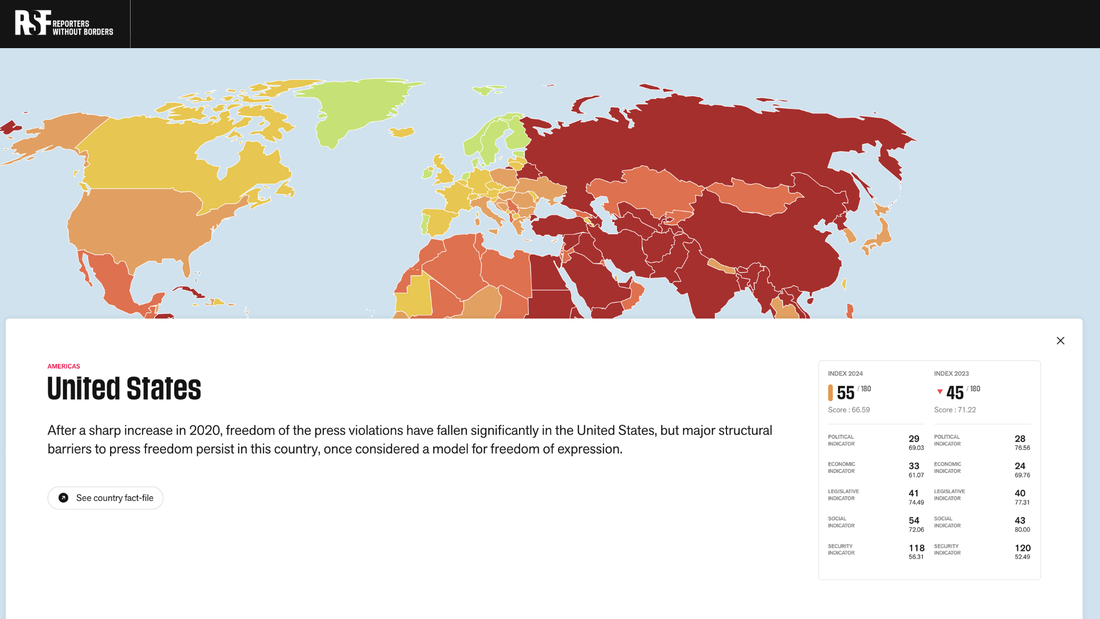




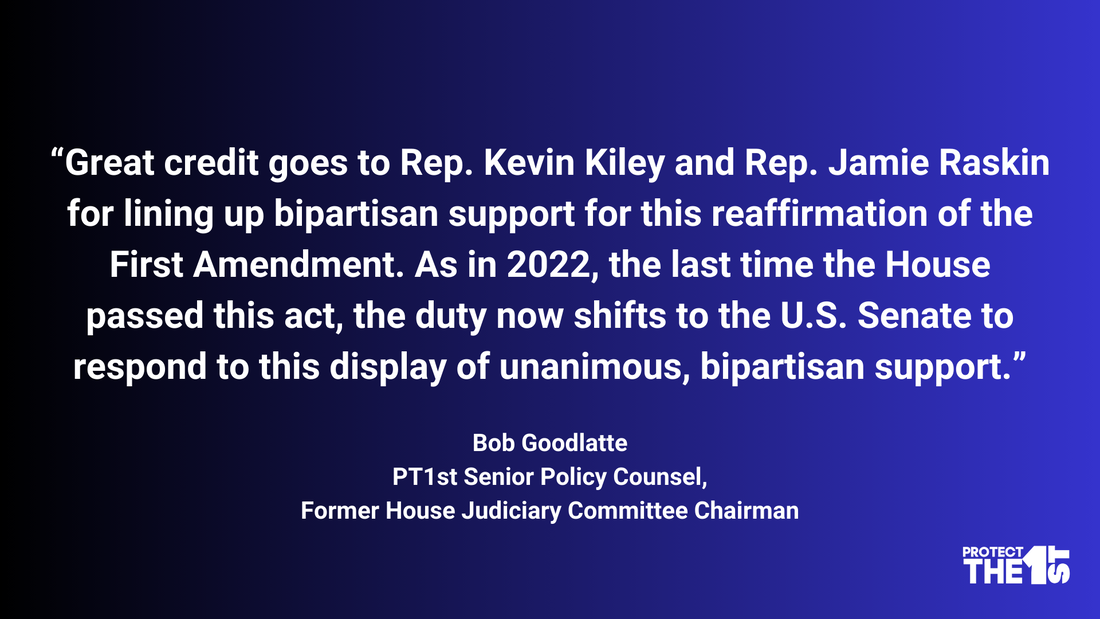

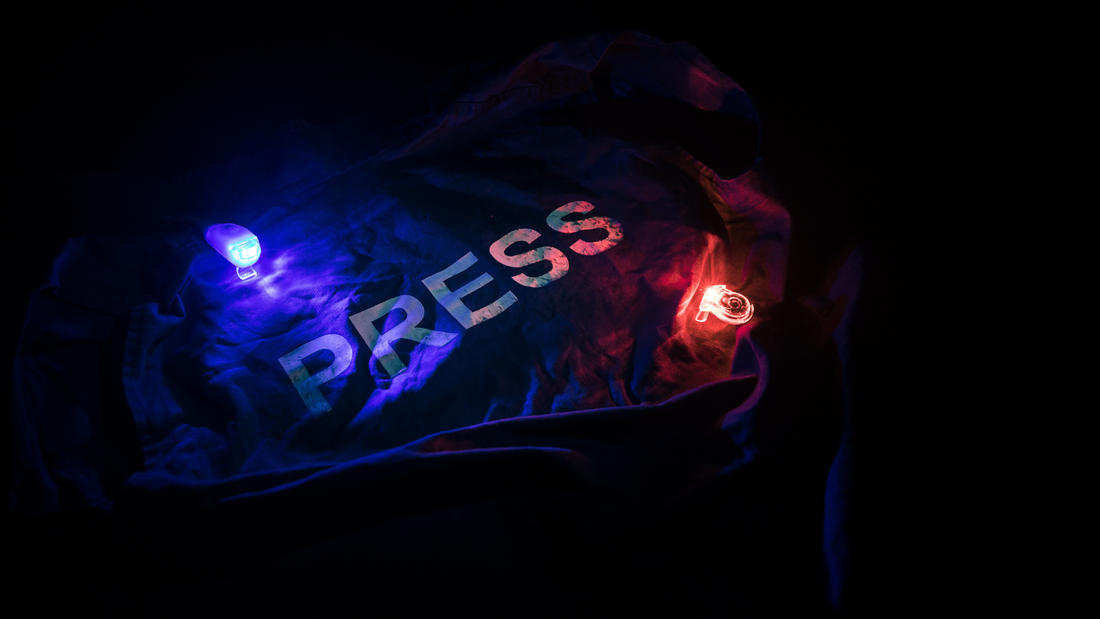



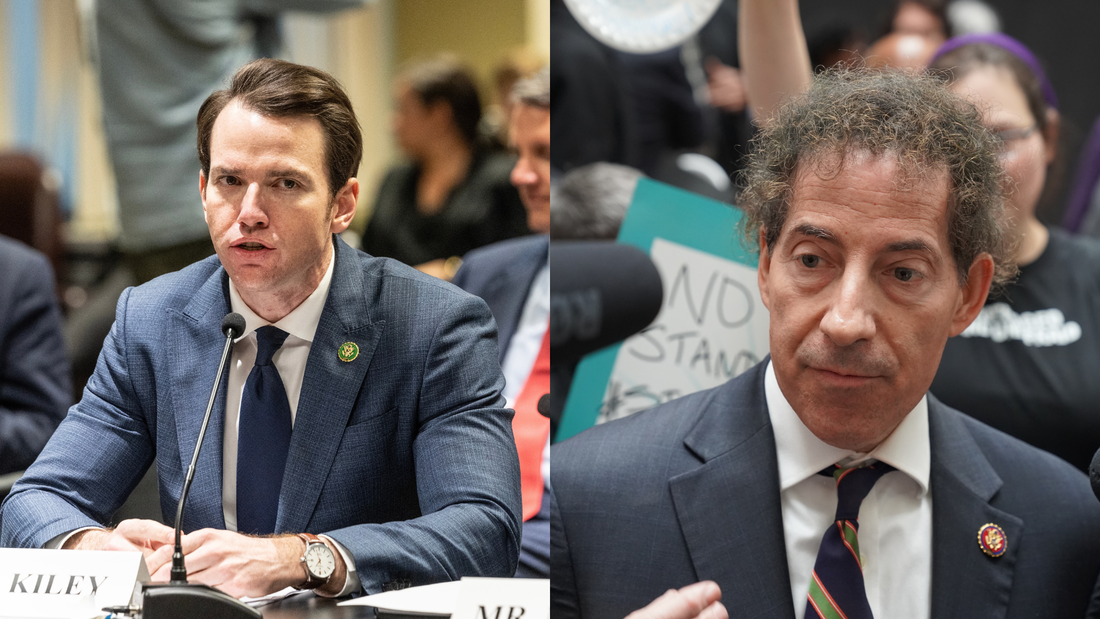
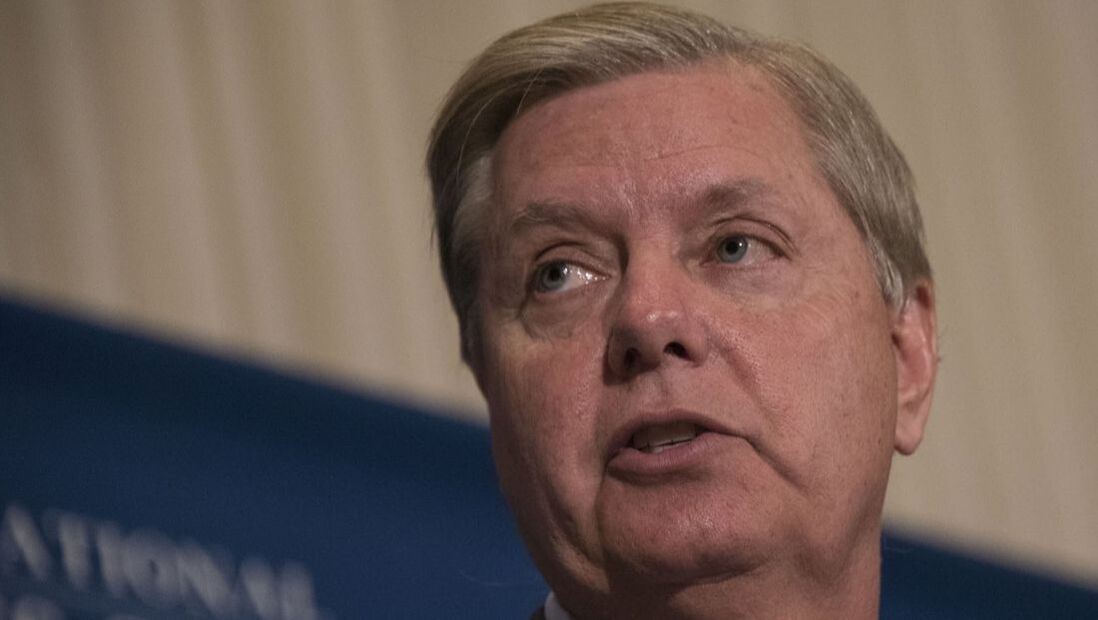

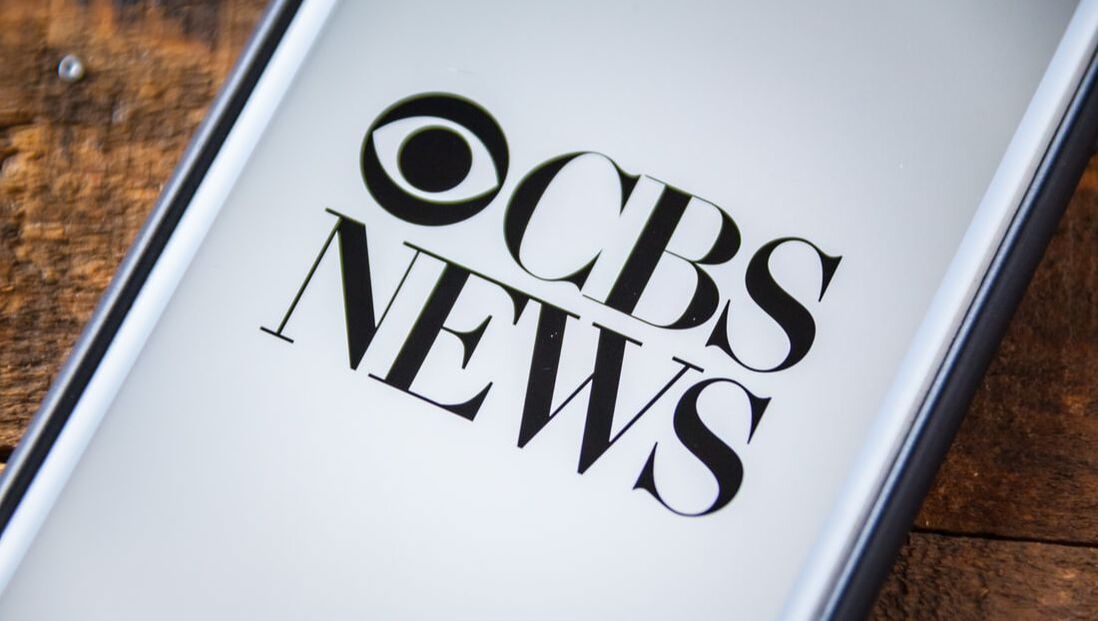
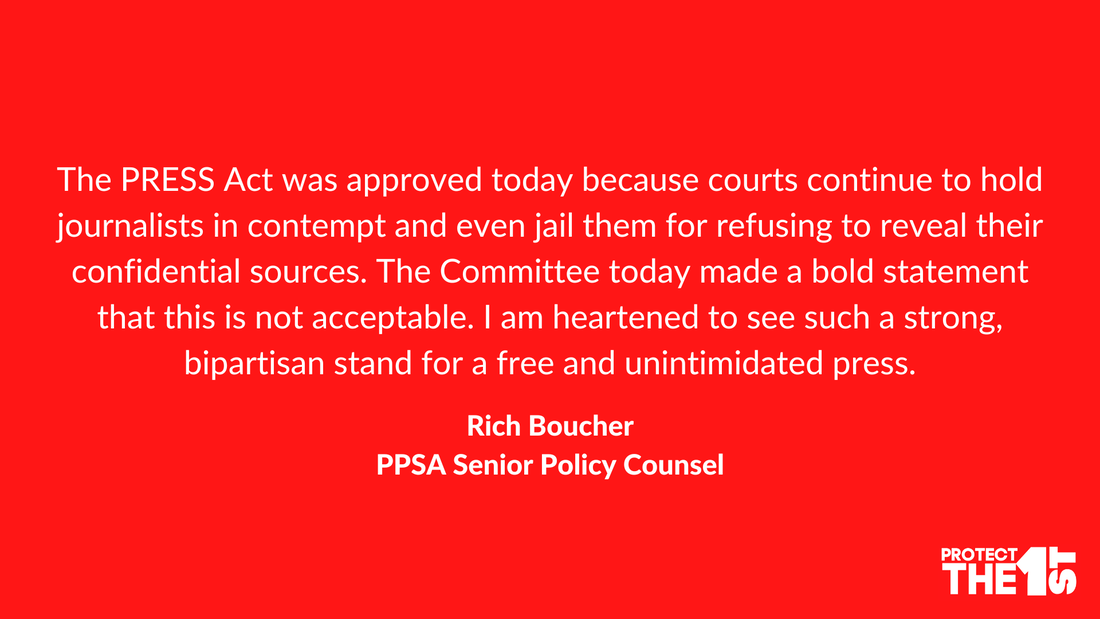

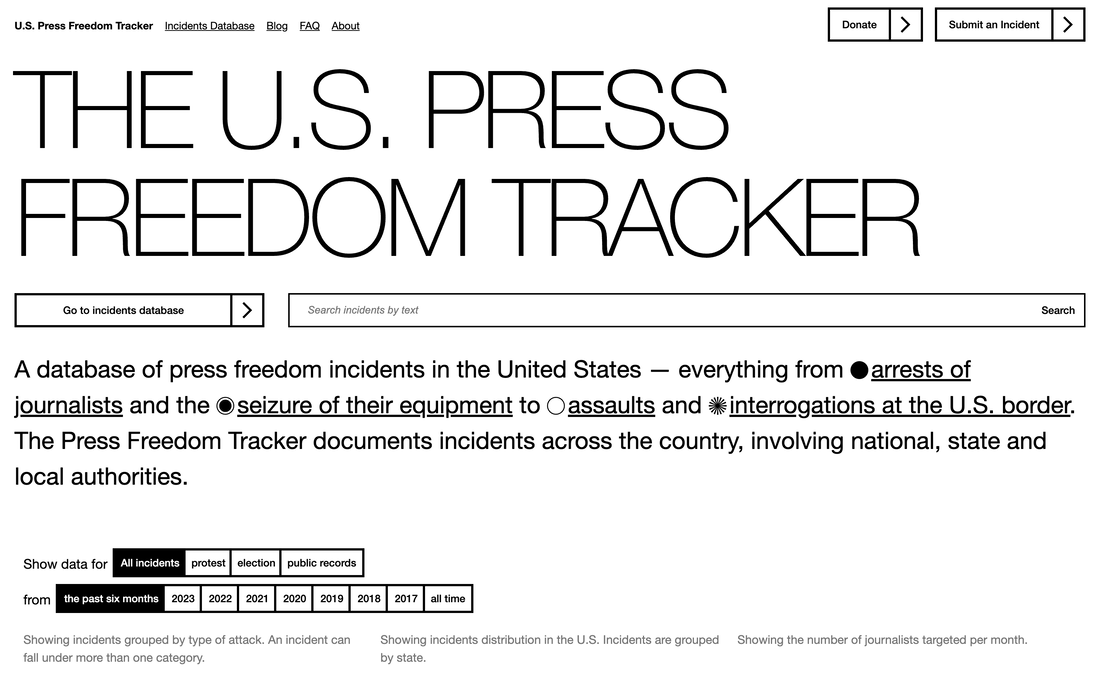

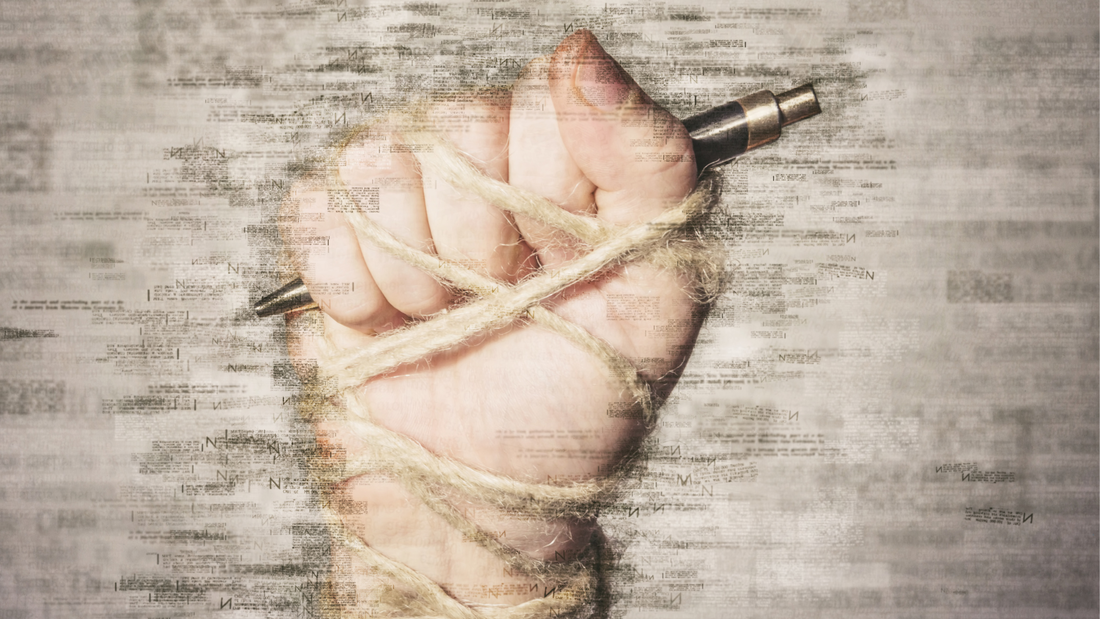
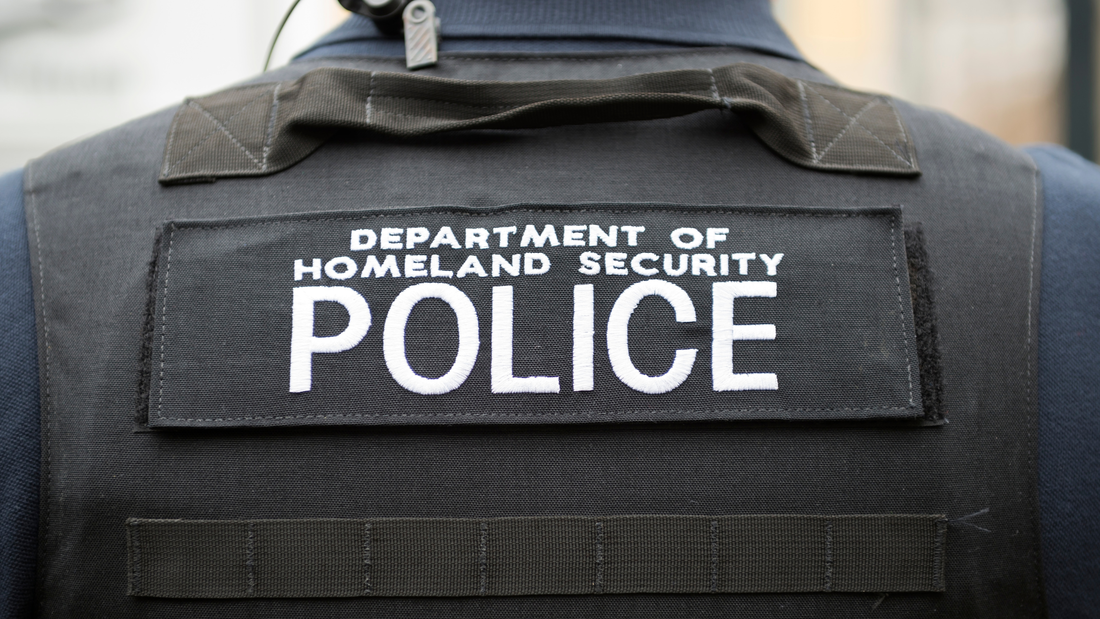

 RSS Feed
RSS Feed